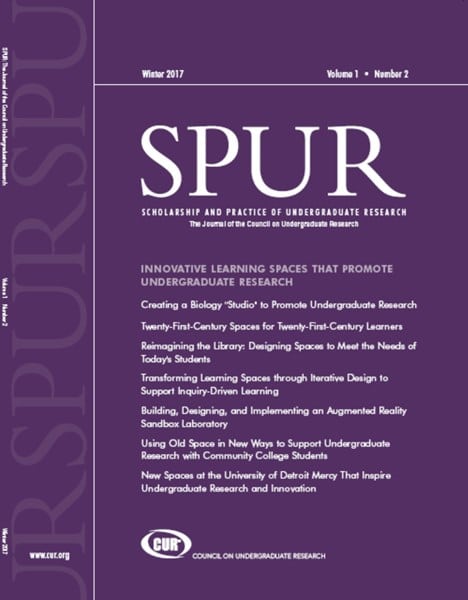SPUR (2017) 1 (2): https://doi.org/10.18833/spur/1/2/11
Appropriately designed laboratory and classroom facilities are essential for facilitating high-quality original research experiences for undergraduate students. Project Kaleidoscope (PKAL)—an initiative funded by the National Science Foundation (NSF) that involved leaders of the Council on Undergraduate Research (CUR)—engaged faculty, administrators, architects, campus planners, and other key stakeholders in the intentional design of learning spaces for undergraduate research at primarily undergraduate institutions (PUIs). This article discusses nearly three decades of experience since the initiation of the movement to improve STEM facilities at PUIs nationwide. It poses questions for consideration at the beginning of a space-planning process and presents examples of planning processes from Monmouth University and Skidmore College. It also discusses the Learning Spaces Collaboratory (LSC) and a roundtable model for learner-centered facility planning based on lessons learned.
More Articles in this Issue
No posts found


